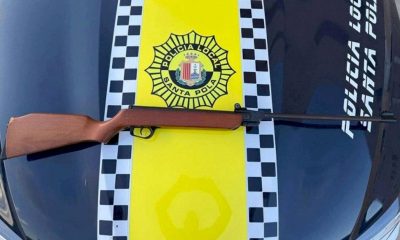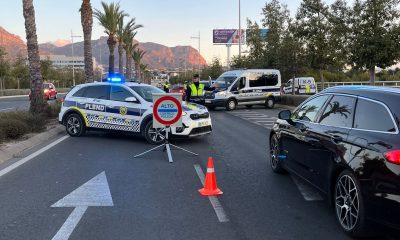Costa Blanca
Vets protest about the animal drug control regulations

The World Health Organisation estimates that animals are the source of 60% of infectious diseases that impact humans. Veterinarians have taken to the streets in concern that this number may rise as a result of the new state legislation that restrict their ability to prescribe antibiotics. In addition to shutting down the majority of the 331 veterinary clinics in the province for two hours, while some remained on call, the group organised its first protest against the new drug laws in Alicante.
They used this time to demonstrate outside the Government Subdelegation and make their concerns heard. A manifesto was read, urging Luis Planas, the Minister of Agriculture, Fisheries, and Food, to change his stance. Veterinarians and pet owners were among the more than 300 attendees.
The prevalence of leishmaniasis in Alicante is three times higher than the national average, which worries veterinarians in particular. They worry that if they don’t handle the animals properly, this zoonosis will become out of control. This human-transmittable illness is typified by sporadic fever episodes, weight loss, concurrent splenic and liver enlargement, and anaemia. In almost 90% of cases, it can be fatal if treatment is not received.
There is one dog for every four people living in Alicante
The province has a substantial pet population, with one dog for every four residents, which contributes significantly to the spread of zoonosis, according to Gonzalo Moreno del Val, head of the Alicante College of Veterinarians. Furthermore, because mosquitoes are the vector of transmission, anyone can contract leishmania, the protozoan that causes this ailment, whether or not they own a pet.
Professionals, however, are upset that the new state law on veterinary medications, which went into effect in January, restricts their prescription in these situations to allopurinol, the medication that is generally agreed to be the most suitable for treating this illness in dogs. Up until the new rule, they used the human active ingredient because there isn’t a veterinary medication in Spain that contains it.
A major issue
This possibility was eliminated by state regulations that went into force at the start of the year. “This animal disease could spread and impact more people since we are unable to adequately treat it. In addition to being a major issue for us professionals and placing us in an awkward position, it has an impact on society as a whole. Moreno del Val adds, “Spain’s uniqueness is also quite extravagant, as this treatment is used in other countries.” Production farms as well as small animal veterinarians are impacted by this ban.
“When it comes to something as crucial as prescription, we cannot treat animals based solely on our clinical judgement or scientific data. First and first, the health and well-being of animals will be impacted, followed by people, if one of our primary duties as healthcare professionals—prescription, just like for doctors—cannot be utilised to cure illnesses. Since many of these illnesses are contagious, they affect public health and are a concern for the entire community.
“My clinical judgement is not criminalised”
Thus, among the slogans that veterinarians in the Plaza de la Montañeta have displayed on their banners are “The health of animals is the health of people,” “For one health,” “We are health professionals, only our clinical judgement is valid,” “Royal Decree 666/2023 prevents us from adequately treating millions of animals,” “I am a veterinarian, my professionalism is not questioned, my clinical judgement is not criminalised,” and “Yes to public health, animals are not to be touched.”
Although they believe that the interpretation made in Spain is far more restrictive than in other European countries, the group’s dissatisfaction, which is widespread throughout the nation, stems from a rule that the Ministry of Agriculture, Fisheries, and Food initially wants to control a public health issue that veterinarians also share, such as antibiotic resistance.
These experts also confirm that pets barely account for 0.19% of the total amount of antibiotics ingested by people and animals in our nation. “Is this percentage really that bad that it puts the veterinary industry under so much strain? The group notes, “It’s odd that we have this control system for animals, but it doesn’t exist for humans; it doesn’t make sense.” According to the vets, the Ministry of Agriculture staff who created the norm lack clinical judgement “and don’t listen to us either.”
A platform for sharing all recipes
This new rule also mandates that veterinarians use an internal electronic platform called PresVet to report every prescription to the Ministry. Additionally, they are no longer permitted to prescribe drugs; instead, owners of dogs and cats must buy them from pharmacies, which frequently run out of stock because of drug shortages. Veterinarians must conduct cultures to determine the best drug, which may be life-threatening for the animal, delaying treatment.
Jordi Fontaner, an Elche veterinarian, observes a system of operation that raises the expense of therapy. “The drugstore would sell you the entire box of a medication, but we used to hand out ten tablets. The law states as much. Both the treatment and the product get more costly. To switch from one antibiotic to another, they require us to run antibiograms (cultures), which raises the expense because each one costs about 50 or 60 euros.
“It’s not an economic issue”
“It’s no longer a financial issue,” the expert adds, adding that the procedure takes longer. Our goal is to be able to care people the way we want to, not to generate money. Because an antibiogram can take up to seven days to produce benefits, treatments shouldn’t be prolonged. Immediate prescriptions are forbidden by the decree.
“We are losing our professional judgement. They forbid us from working or prescribing. We truly know what to employ in each situation, but the law restricts us, particularly when it comes to antibiotics.” Pet owners must now visit pharmacies to obtain their prescription drugs. “They don’t have that medication; they can’t acquire the pills, so they have to go to three, four, or five. In the end, we issue four or five prescriptions for each treatment since they must keep returning, whereas previously we handled it ourselves.”
Fontaner gives the example of an 80-year-old customer who visited multiple pharmacies in search of medication for her pet. “The woman actually informed me that my cat should die at the end. Since they won’t let us work, we’ll ultimately have to get around the law that is being imposed on us.”
With the new rules, “we invest a lot more time in looking for which antibiotics we can get, because we are limited by the law,” according to Tania García, a veterinarian from l’Alfàs del Pi. Perhaps writing a prescription takes twice as long as the 20-minute consultation that was originally scheduled. After that, it must be uploaded to the PresVet system. Or it takes nine days to receive it and the pharmacy doesn’t have it. Customers accuse us, therefore we have to explain, which ultimately takes a lot of time.
Reducing the 21% VAT rate on veterinary consultations as a medical profession is another demand.
Discover more from Costa Blanca Daily
Subscribe to get the latest posts sent to your email.
Costa Blanca
No electricity and few sales at the new temporary location of Torrevieja’s hippie market
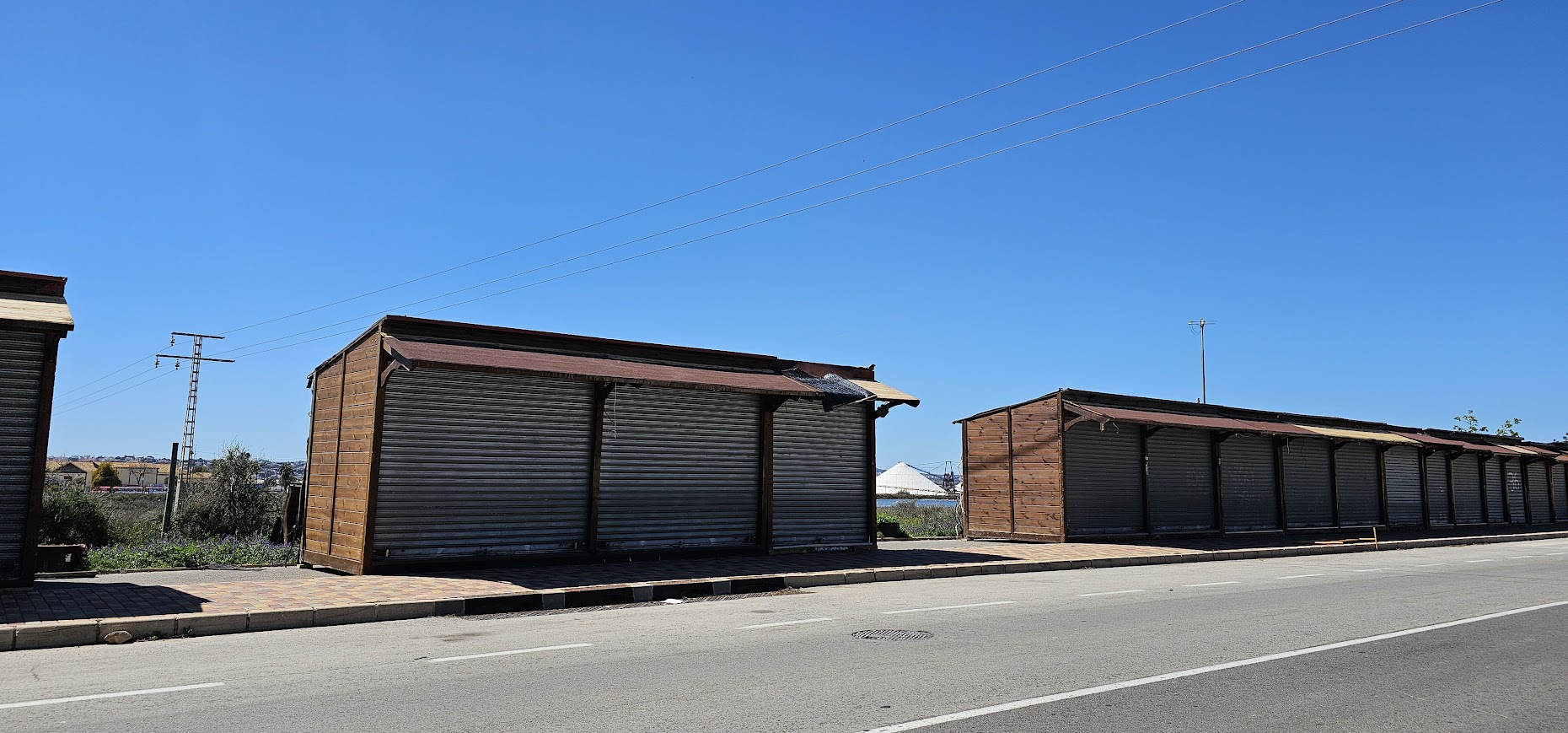
During Holy Week, over 150 stalls from the hippy craft market opened their doors on Avenida de La Estación. This was their temporary location due to the beginning of renovation on Paseo de La Libertad and the port “landfill,” where they had been functioning since the 1990s.
The merchants have been operating without power since their doors opened on April 14. Those who wish to extend their workday until sundown, as shown here overlooking the Torrevieja lagoon, have secured a generator.
The City Council has recently began erecting overhead power lines at the intersection of Avenida de la Estación and Urbano Arregui, which will give energy to the region and serve as the first stretch of the street’s greenway.
In addition to these electrical projects, the City Council is working to improve pedestrian safety by altering pedestrian crossings to facilitate market access.
Most shopkeepers expressed disappointment. They are selling significantly less than they did at their previous site on Paseo de La Libertad.
The increase in attendance happened during Holy Week, despite the adverse weather, holidays, and weekends. On other days, the market is relatively quiet, with many vendors closed.
Merchants point out that the location is less awful than the one originally suggested in Antonio Soria Park. At least in this region, pedestrian access and free parking are available for individuals who park their cars in the improvised parking lot close to the Acequión Canal on their way downtown.
Moving the wooden stalls from Paseo de La Libertad to their new position cost the City Council 230,000 euros. The intention was for the merchants to have opened their new stalls by now, even if they were in a temporary location. But it was too late.
Discover more from Costa Blanca Daily
Subscribe to get the latest posts sent to your email.
Costa Blanca
Santa Pola man questioned by police for teaching children how to shoot a gun in a park

The Santa Pola Local Police responded to an incident near the town’s Skate Park in which a man used an air rifle in front of minors. According to the police force’s social media sites, the person was showing his son and other children how to use the rifle, including shooting rounds into the air.
The incident occurred a few days ago during the officers’ afternoon shift, while they patrolled the area to maintain the safety of public places. They discovered this abnormal condition, which threatened the safety of youngsters and other individuals.
The local police arrived quickly to the area and reported the occurrence to the proper authorities. Fortunately, no serious injuries or consequences were reported, but the incident has aroused worries regarding the reckless use of this type of weapon, particularly in the company of youngsters.
The Local Police attempted to jokingly highlight the gravity of the situation by wondering whether the culprit is a “Father of the Year” candidate. They also emphasised the necessity of promoting civility in public places and educating youngsters about safety regulations.
Discover more from Costa Blanca Daily
Subscribe to get the latest posts sent to your email.
Costa Blanca
Nearly 40 fines issued to scooter drivers in Dénia in one week

During the week of May 5th-11th, the Dénia Local Police increased their enforcement of Personal Mobility Vehicles (PMVs), resulting in 38 fines.
The main violations detected were:
![]() Circulate through pedestrian areas or sidewalks
Circulate through pedestrian areas or sidewalks
![]() Do not wear a helmet
Do not wear a helmet
![]() Driving under the minimum age
Driving under the minimum age
![]() Riding with a passenger.
Riding with a passenger.
In this regard, the Dénia Local Police reminds you of the basic regulations for driving a vehicle:
![]() Maximum speed: 25 km/h
Maximum speed: 25 km/h
![]() Minimum age: 15 years
Minimum age: 15 years
![]() Mandatory use of helmet
Mandatory use of helmet
![]() Lighting: front white light and rear red light
Lighting: front white light and rear red light
![]() Permitted areas: 20-30 lanes and bike lane
Permitted areas: 20-30 lanes and bike lane
![]() It is forbidden to drive in pedestrian areas or pavements.
It is forbidden to drive in pedestrian areas or pavements.
Discover more from Costa Blanca Daily
Subscribe to get the latest posts sent to your email.
-
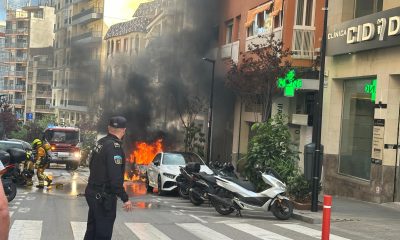
 Costa Blanca2 weeks ago
Costa Blanca2 weeks agoA municipal vehicle was engulfed in a terrifying fire in the heart of Calpe
-

 Costa Blanca2 weeks ago
Costa Blanca2 weeks agoResidents of El Mojón in Pilar de la Horadada will receive mail at their homes
-

 Costa Blanca2 weeks ago
Costa Blanca2 weeks agoAena closed the first quarter of 2025 with a profit of 301.3 million euros
-
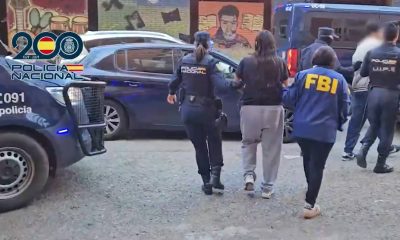
 Costa Blanca2 weeks ago
Costa Blanca2 weeks ago27 members of the Mara Salvatrucha gang arrested in Madrid, Barcelona, Tarragona, and Guardamar
-
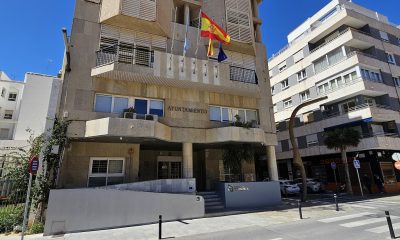
 Costa Blanca2 weeks ago
Costa Blanca2 weeks agoGreen light for drafting of park-and-ride parking project in Torrevieja
-
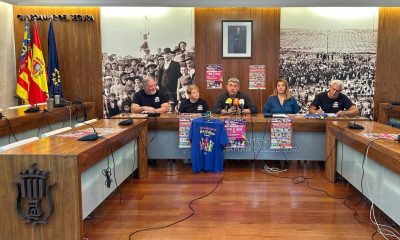
 Costa Blanca5 days ago
Costa Blanca5 days agoThe El Raso, Guardamar celebrates with a Tapas Route and concerts between May 15th and 17th
-

 News1 week ago
News1 week agoFour people arrested in Alicante province for storing and exchanging child pornography
-

 Costa Blanca2 weeks ago
Costa Blanca2 weeks agoShock plan for the housing crisis in the Valencian Community

